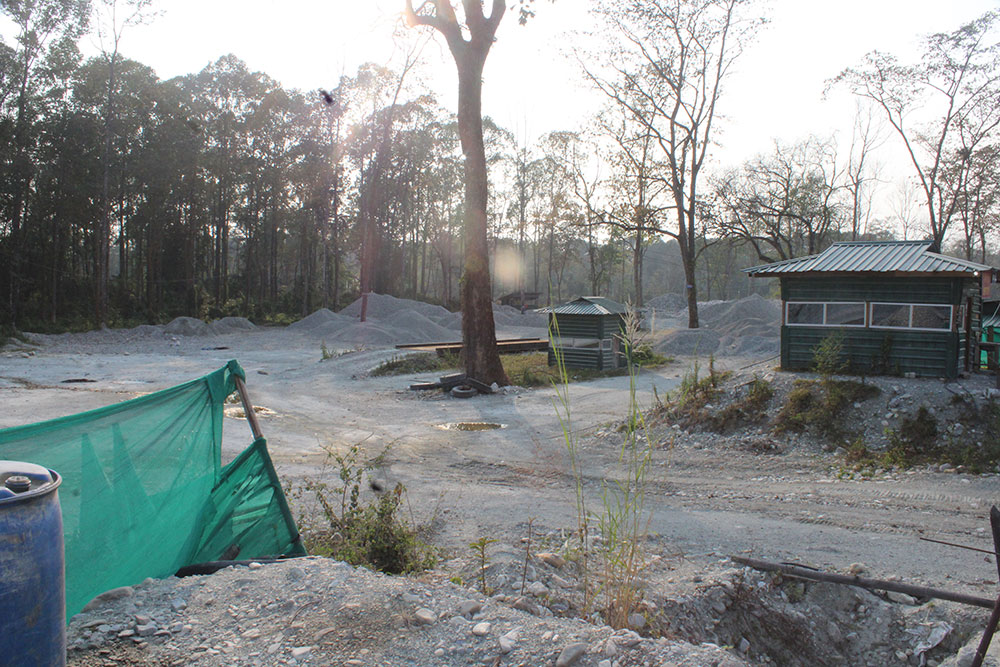Exporters, the BEA, and dzongkhag task force yet to implement containment modality
Nima | Gelephu
Boulder export from Gelephu to India and Bangladesh has remained closed since Sarpang started to report Covid-19 cases from the community last month.
The exporters, the Bhutan Export Association (BEA), and the dzongkhag task force have yet to work out how to continue exports with minimum disruption during the lockdown.
Exporters from Gelephu said the trade is suffering a huge disruption because of the prolonged lockdown.
They claim transporters from Assam, India, who were working with them started withdrawing trucks that were used to ferry boulders to Nakugaon, at the India-Bangladesh border, which is the main export market for exporters during the winter season.
According to exporters, winter is the best time for export, considering the favourable weather and better road conditions.
Lobzang , an exporter from Gelephu, said boulder export in other border towns was facilitated despite the lockdown restrictions.
“Our import partners have to bear huge losses, because they have to bear hiring charges for boulder boats. If they suffer more losses, we will lose our customers. We won’t be able to continue the export then,” he said.
He said they do not understand why the export has not been facilitated despite its huge potential to help the government exchequer during the pandemic.
“We buy riverbed materials worth Nu 100,000 daily. If we could sell 1,000 tonnes of boulders in a month, it would bring in USD 10,000, which would go into the government’s coffers,” Lobzang said.
The exporter said that the stockyard depot was developed last year for the Indian drivers to work in containment. The current stockyard needed holding space for the exporters to work in containment. The export would be done with minimum contact.
Boulders export to Bangladesh and India picked up in November and December of last year with over 15,000 metric tonnes and 21,000 metric tonnes of boulders exported in two months respectively, according to the record with the BEA.
The export was halted by the second week of January.
Gelephu exported close to three million USD worth of boulders last year. The highest export was in December.
BEA programme officer Guru Wangchuk said that the association has repeatedly requested that the task force resume the export in containment mode.
“The export is expected to resume only after the lockdown restrictions are lifted. We are not sure when that will happen,” he said.
He added that the export to Bangladesh was at its peak before Gelephu went into lockdown last month.
“The disruptions along the Indian highways were settled. In summer, the roads are not favourable. The BEA approached the concerned authority after repeated requests from exporters,” Guru Wangchuk said.
Out of the 20 exporters in Gelephu, 12 are currently active.
Exporter Chencho Gyeltshen said the transporters have started deducting advance payments to meet the hiring charges for trucks.
“They have left the work after deducting all the advance payments. Trucks hired for export won’t stay idle for a long time,” he said.
He added that boulder export resumed in Phuentsholing and Samtse despite reporting active cases from the community. “Here the export has been stopped for more than a month.”
Exporters say the number of community cases dropped in the past few weeks in Sarpang.
Meanwhile, the task force members claimed they are not sure when the lockdown restrictions would be lifted as stray cases are reported, even after the mass sweeping completed in Gelephu thromde on February 17.
Sarpang reported three community cases yesterday.
Task force officials say they were overwhelmed with new cases and problems facing the public during the lockdown.
“People struggle to get essentials on time. The health team plans to ensure zero cases from the community,” a member said.
The private sector representative to the dzongkhag task force, Dawa Penjore, said it was the responsibility of the exporters to identify containment areas and approach the task force with a proper plan.
“The task force did not intend to disturb or disallow export. Right after the lockdown was announced, we gave permission to work in containment modes like in construction activities and manufacturing units. Exporters and the BEA never came to discuss plans with us,” he said.
He added that the task force wants to assure minimal risk of transmission. Boulder export is associated with movement, more people, and more risk. “Exporters could still propose to work with minimal risk of transmission. The task force would allow it if exporters assured a high standard of protocols.”
He said that the BEA submitted a letter regarding the export yesterday. However, the submission lacked proper containment plans and a way forward.
He said it would be better to develop a containment plan even when the lockdown is lifted. “The whole country lacks a clear directive now, on what to do next. It is in their interest to work in containment.”


